Speaker Bios
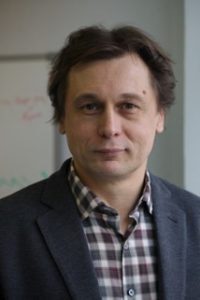
Vadim Gladyshev is a Professor of Medicine at Harvard Medical School, Director of the Center for Redox Medicine at Brigham and Women’s Hospital, and faculty member of the Broad Institute. Dr. Gladyshev’s lab focuses on studying aging, rejuvenation and lifespan control using a combination of experimental and computational approaches. He has published approximately 500 articles. Dr. Gladyshev is the recipient of NIH Pioneer, Transformative and Eureka awards and is an elected member of the National Academy of Sciences, USA.
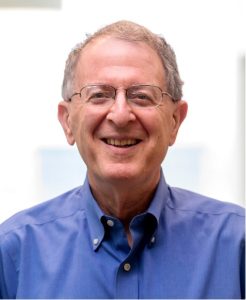
Jeffrey Gordon is the Dr. Robert J. Glaser Distinguished University Professor at Washington University in St. Louis. He received his A.B. from Oberlin College and M.D. from the University of Chicago. After completing his clinical training in internal medicine and gastroenterology, and doing a post-doctoral fellowship at the NIH, he joined the faculty at Washington University where he has spent his entire career. He subsequently joined the faculty at Washington University where he has spent his entire career, first as a member of the Departments of Medicine and Biological Chemistry, then as Head of the Department of Molecular Biology and Pharmacology and now as Founding Director of the University’s interdepartmental Center for Genome Sciences and Systems Biology. His group has used interdisciplinary approaches for defining mechanisms that underlie the assembly, expressed functions, and host effects of human gut microbial communities. Their translational studies, which include a long-standing collaboration with Tahmeed Ahmed at the International Centre for Diarrhoeal Disease Research, Bangladesh, combine gnotobiotic animal models with characterization of the microbiomes and physiologic features of the very human populations whose microbes have been incorporated into the animal models. This approach has allowed them to identify therapeutic targets in order to deliberately alter microbiome properties and host physiology, as exemplified by their discovery and subsequent randomized controlled clinical trials of microbiome-directed therapeutic foods for childhood undernutrition. Gordon is a member of the National Academy of Sciences, American Academy of Arts and Sciences, National Academy of Medicine, and the American Philosophical Society. He has had the privilege of being the research mentor to 150 PhD students and post-doctoral fellows since his lab was established.

Robert Langer is one of 9 Institute Professors at MIT; being an Institute Professor is MIT’s highest honor. His articles have been cited over 446,000 times; his h-index of 331 is the highest of any engineer in history. His patents have licensed or sublicensed to over 400 companies; he is a cofounder of many companies including Moderna. He holds 44 honorary doctorates and has received over 220 awards, including both the United States National Medals of Science and Technology & Innovation (one of 3 living individuals to have received both honors), and has been elected to the National Academies of Medicine, Engineering, Sciences, and Inventors.

Much of Dr. Simon’s prior work focused on fundamental biology, with most of his studies emphasizing the importance of studying single events. He started at Princeton, then NYU Medical Center, as a biophysicist studying how neurons communicated, examining how our perspective would change if we examined the cell from the point of a single calcium channel. They he moved to Rockefeller University where he worked with Gunter Blobel studying single channels for translocating proteins across membranes. He stayed at Rockefeller studying single channel transporters for exporting filamentous phage, single proteins moving in the cell, single HIV viruses assemble, single vesicles fusing or endocytosing, the assembly of single viruses and the dynamics of single nuclear pores. Starting a decade ago he partnered with his daughter Elana and his son Joel, to focus on childhood cancer, emphasizing the value of studying a single well defined cancer, specifically the lethal liver cancer, fibrolamellar carcinoma (FLC). Partnering with the patient community they formed the first medical registry and tissue repository for FLC. His lab is now solely focused on FLC where they identified the driver, the transcriptome, proteome and phosphoproteome to understand pathogenesis with a current push on diagnostics and therapeutics.
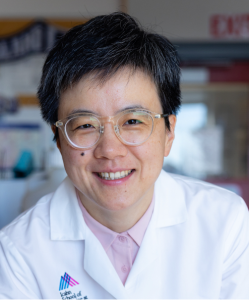
Dr. Wang has a longstanding interest in liver biology and disease. During their postdoctoral training under the co-mentorship of Drs. Sadler and Friedman, they discovered an epigenetic crosstalk that governs mammalian liver regeneration (Wang et al., Developmental Cell, 2019) and identified an autocrine signaling circuit that emerges in hepatic stellate cells during advanced liver fibrosis (Wang et al., Science Translational Medicine, 2023). Their current NIH-funded research program focuses on epigenetic mechanisms that regulate cell identity and memory in the liver. The ultimate goal of their laboratory is to translate fundamental discoveries in liver biology into real-life treatments for patients with chronic liver disease.
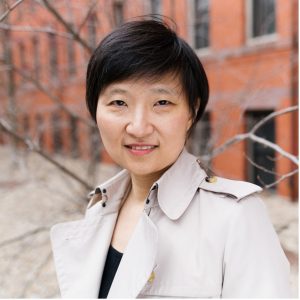
Xiaowei Zhuang is an investigator of Howard Hughes Medical Institute and the David B. Arnold Professor of Science at Harvard University. She pioneered the development of super-resolution imaging and genome-scale imaging methods. She invented STORM, a super-resolution imaging method that broke the diffraction limit and allowed light microscopy with nanometer-scale resolution. Using STORM, she discovered novel molecular structures in cells. She invented a genome-scale imaging method, MERFISH, which enabled spatially resolved single-cell transcriptomics, 3D genomics, epigenomics and functional genomics. Using MERFISH, she made discoveries in areas ranging from the cellular organization and functions in the complex tissues to the gene regulation in cells. Zhuang received her Ph.D. degree from University of California at Berkeley and her postdoctoral training in the lab of Prof. Steven Chu at Stanford University. She received honorary doctorate degrees from the Stockholm University, the Delft University of Technology, and the Icahn School of Medicine at Mount Sinai. Zhuang is a member of the National Academy of Sciences, National Academy of Medicine, and the American Academy of Arts and Sciences. Her awards include the National Inventors Hall of Fame, the Dreyfus Prize in Chemical Sciences, the Breakthrough Prize in Life Sciences, the Heinrich Wieland Prize, the Heineken Prize for Biochemistry and Biophysics, the Lurie Prize in Biomedical Sciences, the Vilcek Prize in Biomedical Science, the Pearl Meister Greengard Prize, the National Academy of Sciences Award for Scientific Discovery, the MacArthur Fellowship, etc.
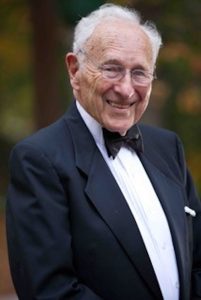
Dr. Irwin Arias is a triple Emeritus: Professor of Medicine, Albert Einstein College of Medicine, Professor of Physiology and Medicine, Tufts University School of Medicine, and Senior Scientist at the National Institutes of Health where he continues to teach.
He has dedicated his career to bridging the gap between scientists in the lab and medical doctors in the clinic, continually building bridges to link basic biology to human disease. In his long and continuing career in liver-related science, medicine, and education, some of his most notable accomplishments include discoveries of mechanisms of inheritable jaundice, ABC transporters mediate bile transport, and that AMP Kinase and Liver Kinase-81 regulate hepatocyte polarization, mitochondrial fusion, ATP production, and bile transporters. These research outcomes established new paradigms for biliary secretion and led to molecular identification of inheritable liver diseases.
A founder of the American Liver Foundation (ALF) and long-term member of both the former New England Division and National Board of Directors, Dr. Arias has contributed substantially to the mission of ALF and his energy and passion for helping liver patients shows no signs of stopping. His support of young PhD and physician scientists interested in the pursuit of liver disease is nothing short of inspiring. Dr. Arias has been the recipient of many national and international honors and his course, “Demystifying Medicine”, which he established at the National Institutes of Health (NIH), has gained national and global attention.
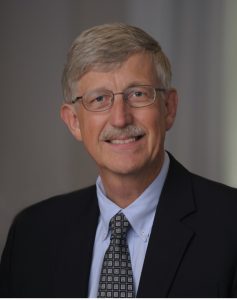 Dr. Francis Collins is a physician-scientist. Under his direction, the Human Genome Project produced the first finished sequence of the human DNA instruction book in 2003. From 2009 to 2021, Collins served under three Presidents as the Director of the U.S. National Institutes of Health, the largest supporter of biomedical research in the world. Following a year in the White House as the President’s Acting Science Advisor, he oversees a research laboratory as a Distinguished Investigator in the intramural program of the National Human Genome Research Institute. He also leads a bold administration initiative to eliminate hepatitis C in the United States. His contributions to science, medicine, and society have been recognized by the Presidential Medal of Freedom, the National Medal of Science, and the Templeton Prize. His most recent book is The Road To Wisdom: On Truth, Science, Faith, and Trust (Little Brown and Worthy, 2024).
Dr. Francis Collins is a physician-scientist. Under his direction, the Human Genome Project produced the first finished sequence of the human DNA instruction book in 2003. From 2009 to 2021, Collins served under three Presidents as the Director of the U.S. National Institutes of Health, the largest supporter of biomedical research in the world. Following a year in the White House as the President’s Acting Science Advisor, he oversees a research laboratory as a Distinguished Investigator in the intramural program of the National Human Genome Research Institute. He also leads a bold administration initiative to eliminate hepatitis C in the United States. His contributions to science, medicine, and society have been recognized by the Presidential Medal of Freedom, the National Medal of Science, and the Templeton Prize. His most recent book is The Road To Wisdom: On Truth, Science, Faith, and Trust (Little Brown and Worthy, 2024).

Dr. Camargo joined the Children’s Hospital and the Stem Cell and Regenerative Biology Department at Harvard University in 2009. Dr. Camargo was named a 2009 V Foundation Scholar and is the recipient of the NIH Director’s New Innovator Award. Most recently, he has received the Vilcek Prize for Creative Promise in Biomedical Science and the ISSCR’s Dr. Susan Lim Award for Outstanding Young Investigator. In February 2022, Dr. Camargo was named the first Regenerative Biology Endowed Chair, in recognition of his scientific contributions and strong leadership.
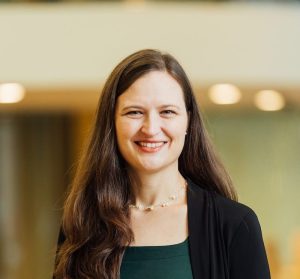 Dr. Carpenter is an Institute Scientist at the Broad Institute of Harvard and MIT. Her research group develops algorithms and strategies for large-scale experiments involving images. The team’s open-source CellProfiler software is used by thousands of biologists worldwide and their Cell Painting assay has been adopted throughout the pharma industry to accelerate drug discovery. She leads industry-wide consortia such as JUMP-Cell Painting and OASIS.
Dr. Carpenter is an Institute Scientist at the Broad Institute of Harvard and MIT. Her research group develops algorithms and strategies for large-scale experiments involving images. The team’s open-source CellProfiler software is used by thousands of biologists worldwide and their Cell Painting assay has been adopted throughout the pharma industry to accelerate drug discovery. She leads industry-wide consortia such as JUMP-Cell Painting and OASIS.
Her PhD is in cell biology from the University of Illinois, Urbana-Champaign. Her postdoc in high-throughput image analysis was at the Whitehead Institute for Biomedical Research and MIT’s CSAIL (Computer Sciences/Artificial Intelligence Laboratory). Carpenter has been named an NSF CAREER awardee, an NIH MIRA awardee, and is listed in Deep Knowledge Analytics’ top-100 AI Leaders in Drug Discovery and Advanced Healthcare.
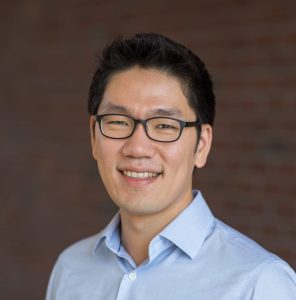 Dr. Kwanghun Chung is currently an Associate Professor of Chemical Engineering at MIT, as well as a Core Member of the Institute for Medical Engineering and Science (IMES). He is also a Core Member of the Picower Institute for Learning and Memory, and an Associate Member of the Broad Institute. He received his B.S. in Chemical Engineering from Seoul National University in 2005, and then moved to Georgia Institute of Technology for his Ph.D. training under the mentorship of Dr. Hang Lu, where he developed automated and integrated microsystems for high-throughput imaging, molecular/behavioral phenotyping, and cell microsurgery of a broad range of living systems. Following his graduation in 2009, Dr. Chung joined the Karl Deisseroth Lab at Stanford University for post-doctoral training in 2010, where he invented a novel technology termed CLARITY (Chung, Nature, 2013), which enables system-wide structural and molecular analysis of large-scale intact biological samples. In 2013, Dr. Chung joined MIT and has been leading an interdisciplinary team to develop and apply novel methods for holistic understanding of large-scale complex biological systems. His group has developed a host of technologies (SWITCH [Cell, 2015], Stochastic Electrotransport [PNAS, 2015], MAP [Nature Biotechnology, 2016], SHIELD [Nature Biotechnology, 2019], and ELAST [Nature Methods, 2020]) that enable rapid and scalable 3D imaging and phenotyping of both animal models and human clinical samples. He cofounded LifeCanvas Technologies to commercialize his inventions, which has enabled rapid adoption of the technologies by over 400 labs and core facilities in leading institutions, and companies across 14 countries. Chung was the recipient of the Presidential Early Career Award for Scientists and Engineers (PECASE) 2019, the NIH New Innovator Award 2016, the Mcknight Technological Innovations in Neuroscience Award 2016, the Packard Fellowships for Science and Engineering Award 2015, the NARSAD Young Investigator Award 2015, the Yumin Awards for Creativity 2014, the Searle Scholars Award 2014, and the BWF Career Award at the Scientific Interface 2012.
Dr. Kwanghun Chung is currently an Associate Professor of Chemical Engineering at MIT, as well as a Core Member of the Institute for Medical Engineering and Science (IMES). He is also a Core Member of the Picower Institute for Learning and Memory, and an Associate Member of the Broad Institute. He received his B.S. in Chemical Engineering from Seoul National University in 2005, and then moved to Georgia Institute of Technology for his Ph.D. training under the mentorship of Dr. Hang Lu, where he developed automated and integrated microsystems for high-throughput imaging, molecular/behavioral phenotyping, and cell microsurgery of a broad range of living systems. Following his graduation in 2009, Dr. Chung joined the Karl Deisseroth Lab at Stanford University for post-doctoral training in 2010, where he invented a novel technology termed CLARITY (Chung, Nature, 2013), which enables system-wide structural and molecular analysis of large-scale intact biological samples. In 2013, Dr. Chung joined MIT and has been leading an interdisciplinary team to develop and apply novel methods for holistic understanding of large-scale complex biological systems. His group has developed a host of technologies (SWITCH [Cell, 2015], Stochastic Electrotransport [PNAS, 2015], MAP [Nature Biotechnology, 2016], SHIELD [Nature Biotechnology, 2019], and ELAST [Nature Methods, 2020]) that enable rapid and scalable 3D imaging and phenotyping of both animal models and human clinical samples. He cofounded LifeCanvas Technologies to commercialize his inventions, which has enabled rapid adoption of the technologies by over 400 labs and core facilities in leading institutions, and companies across 14 countries. Chung was the recipient of the Presidential Early Career Award for Scientists and Engineers (PECASE) 2019, the NIH New Innovator Award 2016, the Mcknight Technological Innovations in Neuroscience Award 2016, the Packard Fellowships for Science and Engineering Award 2015, the NARSAD Young Investigator Award 2015, the Yumin Awards for Creativity 2014, the Searle Scholars Award 2014, and the BWF Career Award at the Scientific Interface 2012.
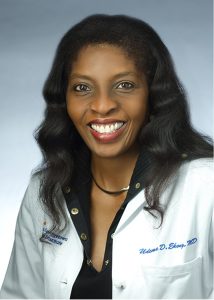
Dr Ekong is a professor of pediatrics and surgery at Georgetown University School of Medicine, Washington, DC, and an attending physician in pediatric transplant hepatology at MedStar Georgetown University, Hospital, Washington, DC.
Dr Ekong attended medical school in Nigeria and proceeded to the United Kingdom and United States for residency and fellowship training in pediatrics, pediatric gastroenterology, and pediatric transplant hepatology.
In addition to her clinical work, Dr Ekong is an active researcher.
The Ekong laboratory interest is in mechanisms that underlie regulatory T cell dysfunction in autoimmune and alloimmune liver disease after liver transplantation. Inflammasome activation, Human Endogenous Retrovirus reactivation, Endoplasmic Reticulum stress with unfolded protein response activation contribute to regulatory T cell dysfunction, so a major focus of the laboratory is to understand these phenomena in molecular terms. The Ekong laboratory has a strong history of collaborative work with key collaborations with laboratories at the NIH, Yale University, Columbia University, and Imperial College, London, UK.
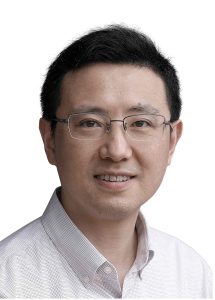
Dr. Lijian Hui is the PI in Shanghai Institute of Biochemistry and Cell Biology (SIBCB). He is currently the Assistant Director of SIBCB , board member of Chinese Association of Cell Biology, President of Chinese Association of Cell and Gene Therapy, editorial board member of Cell Stem Cell, Hepatology etc.
Dr. Hui studies molecular pathology of liver diseases, with the focus on cell identity conversion, i.e., dedifferentiation and transdifferentiation, in liver regeneration and tumorigenesis. His team demonstrated the conversion from fibroblasts into hepatocytes in vitro, thereby providing one of the first evidence of transdifferentiation in mammalian cells. His team is also among the first to report cell identity conversion in liverinjury and repair. Based on these fundamental findings, his team generates functional hepatocytes, hiHep and ProliHH, for clinical application. Innovative therapies based on these cells, namely bioartificial liver devices and encapsulated liver organoids, are now being tested in clinics. Dr. Hui is also the founder of Hexaell Biotech, which aims to helping liver disease patients with edge-cutting cell therapy technologies.
Dr. Hui has recieved several awards, including 10 Top Breakthroughs in Science and Technology of China, China Young Scientists Award, Natural Science Award of Shanghai Municipality, Tan Jiazhen Life Science Innovation Award etc.
 Dr Kristin Knouse is the Whitehead Career Development Professor in the MIT Department of Biology and the Koch Institute for Integrative Cancer Research. She received a B.S. in biology from Duke University in 2010 and then enrolled in the Harvard and Massachusetts Institute of Technology (MIT) M.D.-Ph.D. Program, where she earned a Ph.D. through the MIT Department of Biology in 2016 and an M.D. through the Harvard-MIT Division of Health Sciences and Technology in 2018. She conducted her doctoral research in the laboratory of Angelika Amon, where she developed tools to characterize large-scale somatic copy number alterations in mammalian tissues and then used diverse approaches to reveal the importance of tissue architecture for chromosome segregation fidelity in epithelia. In 2018, she established her laboratory as a Whitehead Fellow at the Whitehead Institute for Biomedical Research and was honored with the NIH Director’s Early Independence Award. In July 2021, she joined the MIT Department of Biology and Koch Institute for Integrative Cancer Research as an Assistant Professor. Her lab develops high-throughput functional genomics approaches to understand and modulate organ injury and regeneration.
Dr Kristin Knouse is the Whitehead Career Development Professor in the MIT Department of Biology and the Koch Institute for Integrative Cancer Research. She received a B.S. in biology from Duke University in 2010 and then enrolled in the Harvard and Massachusetts Institute of Technology (MIT) M.D.-Ph.D. Program, where she earned a Ph.D. through the MIT Department of Biology in 2016 and an M.D. through the Harvard-MIT Division of Health Sciences and Technology in 2018. She conducted her doctoral research in the laboratory of Angelika Amon, where she developed tools to characterize large-scale somatic copy number alterations in mammalian tissues and then used diverse approaches to reveal the importance of tissue architecture for chromosome segregation fidelity in epithelia. In 2018, she established her laboratory as a Whitehead Fellow at the Whitehead Institute for Biomedical Research and was honored with the NIH Director’s Early Independence Award. In July 2021, she joined the MIT Department of Biology and Koch Institute for Integrative Cancer Research as an Assistant Professor. Her lab develops high-throughput functional genomics approaches to understand and modulate organ injury and regeneration.
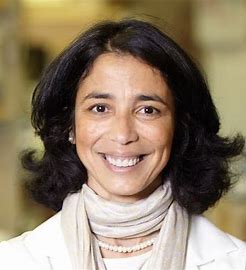
Dr. Merad is an internationally acclaimed physician-scientist and a leader in the fields of dendritic cell and macrophage biology with a focus on their contribution to human diseases. Dr. Merad identified the tissue resident macrophage lineage and revealed its distinct role in organ physiology and pathophysiology. She established the contribution of this macrophage lineage to cancer progression and inflammatory diseases and is now working on the development of novel macrophage-targeted therapies for these conditions. In addition to her work on macrophages, Dr. Merad is known for her work on dendritic cells, a group of cells that control adaptive immunity. She identified a new subset of dendritic cells, which is now considered a key target of antiviral and antitumor immunity.
Dr. Merad leads the Precision Immunology Institute at the Icahn School of Medicine (PrIISM) to bring immunology discoveries to the clinic. She also founded the Human Immune Monitoring Center at Mount Sinai, one of the world’s most sophisticated research centers, which uses cutting-edge single-cell technology to understand the contribution of immune cells to major human diseases or treatment responses.
Dr. Merad has authored more than 200 primary papers and reviews in high profile journals. Her work has been cited several thousand times. She receives generous funding from the National Institutes of Health (NIH) for her research on innate immunity and their contribution to human disease, and belongs to several NIH consortia.

Dr. Allison O’Neill is a Pediatric Oncology physician-scientist with a passion for translational research and expertise in the care of pediatric patients with solid tumors. She serves as the Clinical Director of the Pediatric Solid Tumor Program and Medical Director of the Liver Tumor Center of Excellence at Dana-Farber Cancer Institute and Boston Children’s Hospital. In her role as Director of the Solid Tumor Program, Dr. O’Neill’s overarching responsibilities include guiding clinical research initiatives in concert with their experimental therapeutics division and revising their current clinical care infrastructure. Dr. O’Neill is self-tasked with cultivating a programmatic mission surrounding multidisciplinary clinics, visibility in the rare tumor space, and expanding initiatives in immunotherapy. The Liver Tumor Center of Excellence collaboratively unites individuals of a broad multidisciplinary expertise to deliver care to children with these exceptionally rare tumors. Nationally, she chairs the Children’s Oncology Group Liver Tumor Committee which provides a far-reaching collaborative network through which to conduct clinical trials for patients with these rare and often difficult-to-treat tumors.
 Dr. Quin Wills is a medical doctor with further degrees in genetics, mathematics, computational biology, and a doctorate in systems genomics, from Oxford and Cambridge Universities. He started his first drug discovery liver genomics company 17 years ago. More recently he founded and led Novo Nordisk’s Advanced Genomics Department, again focused on liver disease. Frustrated with the lack of therapeutic innovation in chronic diseases, Quin co-founded Ochre Bio, a liver RNA therapeutics company that differentiates itself in the ability to generate large-scale human discovery and validation data at its global R&D sites in Europe, Asia, and the US. A key innovation from Quin’s team’s at the intersection of dry-lab (machine learning) and wet-lab has been the ability to progress a hit to generating human data on the lead within weeks, not years. They do this using whole human livers that they maintain on machines.
Dr. Quin Wills is a medical doctor with further degrees in genetics, mathematics, computational biology, and a doctorate in systems genomics, from Oxford and Cambridge Universities. He started his first drug discovery liver genomics company 17 years ago. More recently he founded and led Novo Nordisk’s Advanced Genomics Department, again focused on liver disease. Frustrated with the lack of therapeutic innovation in chronic diseases, Quin co-founded Ochre Bio, a liver RNA therapeutics company that differentiates itself in the ability to generate large-scale human discovery and validation data at its global R&D sites in Europe, Asia, and the US. A key innovation from Quin’s team’s at the intersection of dry-lab (machine learning) and wet-lab has been the ability to progress a hit to generating human data on the lead within weeks, not years. They do this using whole human livers that they maintain on machines.